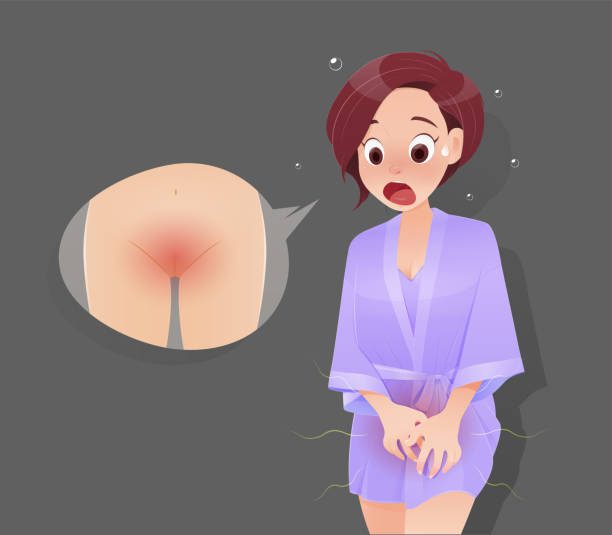This content is for informational and educational purposes only. Always consult a qualified healthcare provider.
Last Updated on February 5, 2024 by Grace Oluchi
Vaginal odor is a common concern for many women, but it can be difficult to talk about and even more challenging to address. In this article, we will explore the top 5 frequently asked questions about vaginal odor, including the different types, causes, diagnosis, and treatment options available.
📋 Table of Contents
What it is.
Vaginal odor refers to any annoying or unusual smell coming from the vagina. It can be caused by a variety of factors, such as poor hygiene, infections, or hormonal changes. Normal vaginal discharge can have a mild odor, but it should not have a strong or annoying smell. If you notice a change in your vaginal odor, it may be a sign of a key health condition, such as bacterial vaginosis, yeast infection, or sexually transmitted infection. It is important to consult with your doctor if you experience any unusual vaginal odor or discharge to determine the base cause and receive appropriate treatment.
Vaginal odor can be a symptom of an key health condition. Here’s what you need to know about the types, causes, diagnosis, and treatment of vaginal odor:
Types:
- Fishy odor.
- Foul odor.
- Musty odor.
- Metallic odor.
- Sweaty odor.
Causes of Vaginal Odor:


- Bacterial vaginosis.
- Yeast infections.
- Trichomoniasis.
- Poor hygiene.
- Menopause.
- Sweat and friction.
- Sexually transmitted infections.
- Retained tampon or foreign object.
- Certain medications.
Diagnosis of Vaginal Odor:
Your healthcare provider will perform a pelvic exam and may also take a sample of vaginal discharge for testing. They may also ask about your symptoms and sexual history.
Treatment:
The treatment depends on the base cause. Here are some examples:
- Bacterial vaginosis: Antibiotics such as metronidazole or clindamycin can be useful.
- Yeast infection: Antifungal medications such as fluconazole or topical creams may be useful.
- Trichomoniasis: Antibiotics such as metronidazole or tinidazole may be prescribed.
- Poor hygiene: Practicing good hygiene, including washing the genital area with mild soap and water, can help reduce vaginal odor.
- Menopause: Hormone replacement therapy may also be prescribed to help balance hormone levels.
- Sexually transmitted infections: Antibiotics or antiviral medications may be prescribed, depending on the type of infection.
It is important to consult with your healthcare provider if you also experience any unusual vaginal odor or discharge. They can help determine the base cause and also provide appropriate treatment.
Tips to help keep your vagina odor-free:
- Practice good hygiene: Wash your genital area with warm water and mild, fragrance-free soap every day. Avoid using scented products or douching, as they can disrupt the natural balance of bacteria in your vagina and cause odor.
- Wear breathable clothing: Choose underwear made from breathable fabrics like cotton and avoid tight, synthetic clothing that can trap moisture and bacteria.


- Change tampons and pads regularly: Change your tampon or pad every four to six hours, or more often if needed, to prevent bacteria from building up.
- Practice safe sex: Use condoms during sex to prevent the spread of sexually transmitted infections, which can cause odor.
- Eat a healthy diet: A diet high in fruits, vegetables, and whole grains can help promote a healthy balance of bacteria in your vagina.
- Stay hydrated: Drinking plenty of water can help flush out toxins and bacteria from your body.
The Key Takeaway.
If you notice a strong or annoying odor coming from your vagina, it may be a sign of an infection or other health concern. In this case, it is best to consult with your healthcare provider for proper diagnosis and treatment.
What are the different types of vaginal odor?
Vaginal odor can vary in intensity and may have different qualities, such as a fishy or musty smell. The type of odor you experience may be indicative of the underlying cause.
What are the common causes of vaginal odor?
Vaginal odor can be caused by a variety of factors, including bacterial overgrowth, yeast infections, hormonal imbalances, poor hygiene, and sexually transmitted infections.
How is vaginal odor diagnosed?
Vaginal odor is typically diagnosed through a physical exam and medical history. Your doctor may also perform tests to rule out underlying infections or other conditions.
What are the treatment options for vaginal odor?
The treatment depends on the underlying cause. This may include antibiotics for bacterial overgrowth, antifungal medication for yeast infections, or hormonal therapy for hormonal imbalances. Maintaining good hygiene practices and avoiding certain irritants may also help to alleviate symptoms.
Can vaginal odor be prevented?
Maintaining good hygiene practices, such as regularly washing the genital area and wearing clean underwear, can help to prevent it. Avoiding douching and using scented products in the genital area can also help to prevent irritation and bacterial overgrowth.

